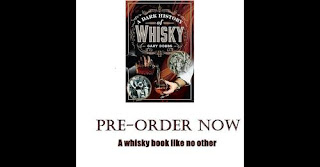Corbucci had worked with Leone when he was his assistant on 1959's The Last Days of Pompeii, but the first western he directed was Red Pastures (1963) which starred James Mitchum (son of Robert) and featured a story of warring gangs - a plot Leone would use for his own later A Fistful of Dollars. He would direct another two western before creating his masterpiece with Django and these were Minnesota Clay and Johnny Oro and both of them are easily forgotten.
Django (1966) though stands up there with the best of the genre - The Italian westerns were known for the quirky qualities of their anti-heroes, and Django is possibly the quirkiest of them all. He doesn't travel around on horseback but rather walks everywhere dragging a battered coffin, the contents of which are a mystery for much of the movie. The screenplay was written by Corbucci and his younger brother, Bruno with input from Franco Rossetti. Jose Maesso and Piero Vivarelli. The story find the coffin-dragging drifter Django returning from the civil war and finding himself caught between two warring factions in a border ghost town. Hey originality was not something that bothered the european western masters and the plot of Django not only borrows from Corbucci's own Red Pastures but Leone's A Fistful of Dollars as well as several other movies. All of these movies were made with the same ingredients but they came out of the creative pot with widely different flavors, though all provided the same feast of violent mayhem.
Django feels like no other western - with the ever present coffin it shares a similar atmosphere to the Italian horror movies. The moody lighting, lurid colour schemes and the Klansmen all add to the mood. And of course the semi ghost town in which the movie takes place is reminiscent of a graveyard. Most sphagetti westerns gave us a sun bleached, dry landscape but Django takes place in a rain soaked, mud bath of a town.
The casting of the lead was spot on - Franco Nero had the smoldering looks and when he moved it was with a slow, measured quality that was in perfect synch with the mood of the movie. That the actor could perform his own fight scenes was a bonus and the fights in this movie are brutally realistic, in a stylized way of course.
Django, like most of the characters from the sphagetti westerns, is a loner with a mysterious past - much of which is never explained which keeps the character totally enigmatic. He is a dark antihero and with his plan to steal gold he manipulates two warring factions to his own ends. This movie is savagely violent (the ear cutting scene in Quentin Tarantino's Reservoir Dogs came from this movie) but never off-putting. It can be stomach churning at times but that's the measure of how involved the viewer gets in this amazing movie.
When the movie was released it was a phenomenon in Italy and turned Franco Nero into a major star. The film was also huge in Spain and Germany, but the film was not released in the UK because of the extreme violence and perhaps because of the atrocious dubbing it didn't do too well in the US market. Still the movie begat a slew of official and unofficial sequels and to date there have been over fifty Django movies, most of them are dire and in the book, Once Upon A Time in the Italian West author, Howard Hughes states that out of all the Django movies only four are worth viewing.
 |
| Django and Django |
If you've never seen Django then you need to do so immediately, for it is an exceptionally good film and an important piece of western movie history.








No comments:
Post a Comment